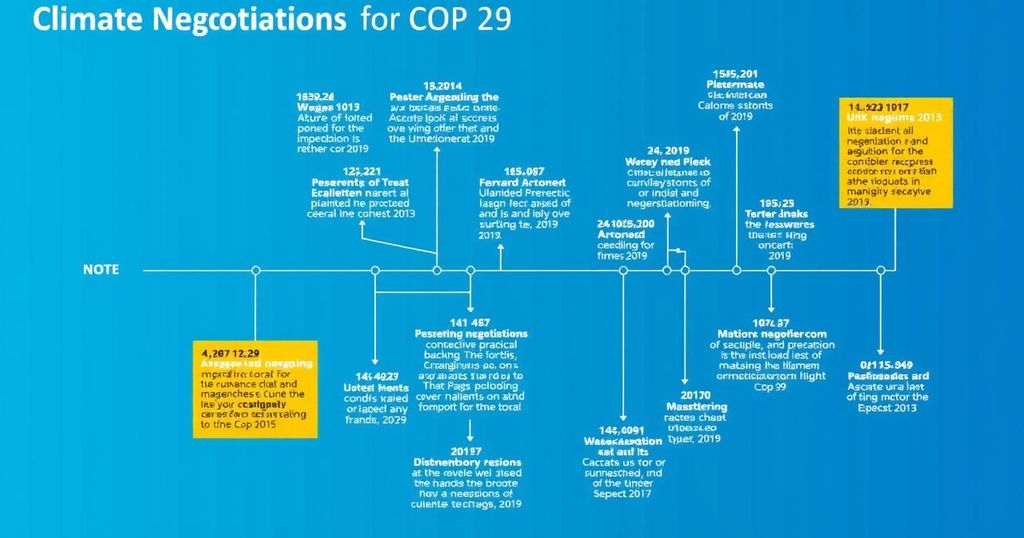The UN climate negotiations have progressed from the 1995 inception of the UNFCCC to COP29 in 2023, highlighting crucial milestones such as the Kyoto Protocol and the Paris Agreement. These discussions reflect the evolving understanding of climate science and the necessity for coordinated global efforts to mitigate climate change impacts. Significant outcomes of recent COPs indicate a commitment to transition away from fossil fuels and address climate-related financial burdens.
The journey of international climate negotiations began in earnest in 1995 with the inception of the United Nations Framework Convention on Climate Change (UNFCCC). Since then, there have been numerous significant milestones, from the landmark Kyoto Protocol in 1997 to the Paris Agreement in 2015, each representing vital steps in the global fight against climate change. Peer-reviewed research has indicated a direct correlation between rising carbon dioxide levels and increasing global temperatures, compelling world leaders to convene and address these pressing issues through structured negotiations. Recent conferences, including COP28 in 2023, signal a continuing commitment to mitigate climate change impacts, emphasizing the need to transition away from fossil fuels.
The United Nations climate negotiations are a series of conferences aimed at combating global warming, initiated by the establishment of the UNFCCC at the Rio Earth Summit in 1992. The subsequent Conferences of the Parties (COP) have evolved as platforms for countries to negotiate binding agreements and commitments, addressing various aspects of climate science, policy, and international cooperation. Over the decades, these gatherings have seen shifts in political will and scientific understanding, informing actions to reduce carbon emissions and adapt to climate impacts.
The evolution of UN climate negotiations, marked by pivotal events such as the Kyoto Protocol and Paris Agreement, underscores the urgent necessity for global cooperation in addressing climate change. Despite setbacks, the continuous dialogue among nations reflects an acknowledgment of climate change’s existential threat. The initiatives established at recent conferences, notably COP28’s commitment to reduce fossil fuel reliance, highlight a growing consensus on the actions required to safeguard the planet for future generations.
Original Source: www.swissinfo.ch






